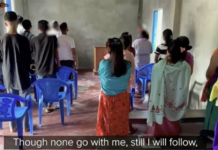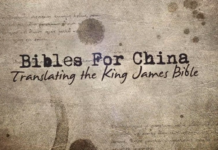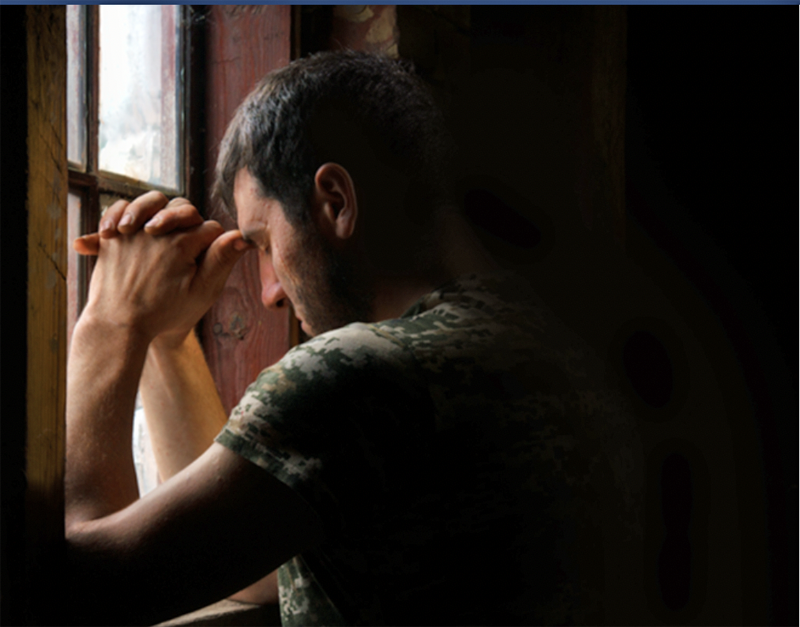 ALBUQUERQUE, NEW MEXICO (ANS)–There’s lots of talk of health during this COVID-19 crisis. We need to keep our bodies, minds, and souls healthy during this time. Cultivating a strong Christian life is akin to training the body for a run (see Hebrews 12:1-2). To help facilitate an exercise plan that is useful for building your spiritual life, we encourage you to follow these three simple steps, taking a LAP around Pastor Skip’s teaching:
ALBUQUERQUE, NEW MEXICO (ANS)–There’s lots of talk of health during this COVID-19 crisis. We need to keep our bodies, minds, and souls healthy during this time. Cultivating a strong Christian life is akin to training the body for a run (see Hebrews 12:1-2). To help facilitate an exercise plan that is useful for building your spiritual life, we encourage you to follow these three simple steps, taking a LAP around Pastor Skip’s teaching:
Listen to the main points and thoughts shared by Pastor Skip in the teaching. “Families in a Time of Crises” can be found here.
Answer the questions based upon the message, helping you take the thoughts captive to the obedience of Christ (2 Corinthians 10:5). Questions are below.
Pray. We’ve offered prayer points based on the above listening and answers sections.
In this teaching, Pastor Skip uses Joshua 24 as his springboard to discuss families in a time of crisis.
Listen
Recently I read about some great truths kids have learned. Here are a few:
-
- No matter how hard you try, you can’t baptize cats.
- Never ask your three-year-old brother to hold a tomato.
- Never hold a vacuum cleaner and a cat at the same time.
- You can’t hide a piece of broccoli in a glass of milk.
- The best place to be when you’re sad is on Grandpa’s lap.
Funny, I know. But at times, there are things not as fun to discuss—one being how to hold your family together in a time of crisis. In this short article, I want to talk about how to go through a crisis together as a family unit.
The family is the fundamental component of society; as goes the family, so goes culture.
Throughout history, the family has been the basic unit of human civilization, acting as the bond that hold community together. Family predates government, institutions, and nations.
To help look at how a family acted in crisis, I’ll use the story of Joshua, the leader of a nation in crisis. He had enemies all around. The question is: How could he and his people survive?
What we find in the text is that Joshua wore three hats: chairman, challenger, and choice-maker.
Joshua the Chairman of a Nation (v. 1)
As Moses’ successor, Joshua was the general of Israel’s armed forces, and also the nation’s leader. He oversaw roughly three million people.
According to the Jewish historian Josephus, Joshua was born a slave in Egypt. He later became one of two faithful spies that Moses sent out into Canaan. At nineteen years old, Joshua participated in the exodus of the Jewish people from Egypt. Then, at fifty-nine years old, he became chairman of the board, so to speak.
During his last State of the Union message in Joshua 24, Joshua speaks as the leader of his nation and home.
He also spoke as a member of one household to other households—a family man to families.
In Joshua’s speech, his priority is with the people—not politics, positions, or property.
 Joshua the Challenger to the People (vv. 14-15a)
Joshua the Challenger to the People (vv. 14-15a)
After recounting God’s protection and provision from Egypt up to this point in verse 1-13, Joshua pivoted, saying, “Now therefore…. Serve the Lord!” (v. 14). Joshua brought a challenge to Israel’s families: “Choose this day for yourselves whom you will serve” (v. 15).
This is Joshua being logical, showing that the theological is often logical. Maybe the better term is theo-logical. Joshua wanted Israel to respond in the right way based on what God had done for them.
The Apostle Paul did something similar in Romans 12:1. After detailing all God had done in Christ for eleven chapters, he opened chapter 12 by saying, “I plead with you to give your bodies to God because of all he has done for you. Let them be a living and holy sacrifice” (v. 1 nlt).
Similarly, Joshua called upon Israel to act upon the promises of God. It is a challenge, requiring a step of faith.
Every sermon, message, and teaching we hear should challenge us to change. As F.W. Boreham stated, “We make our decisions and then our decisions turn around and make us.”
What was Joshua challenging the Israelite’s to decide? Whether or not to “fear the Lord [and] serve Him in sincerity and in truth” (Joshua 24:14).
Yirat
The idea of fear is rooted in the Hebrew word yirat. This “fear” is not a superstitious dread of God but a high form of respect, like someone revering his father and mother. Yirat is a reverential awe that produces humble submission to a loving God.
Here’s how it works: Because we know God to be good and loving—because He fosters an intimate relationship with us, we should be in awe of Him, not wanting to displease Him.
This type of awe keeps us clean (see Proverbs 16:6) and confident (see Proverbs 14:26).
And as a consequence of keeping us clean, Joshua called on the Israelites (and us) to put away false gods (see Joshua 24:14).
False gods are anything that keeps us apart from the one true God.
So, here’s the question: In your family, what is shaping your idea of God and family life?
Here’s the hard reality, as demographer Kingsley Davis reports: “At no time in history, with the possible exception of Imperial Rome, has the institution of marriage been more problematic than it is today.”[1]
Like Joshua (v. 15b), we must be willing to say, “But as for me and my house, we will serve the Lord.”
Joshua the Choice Maker (vv. 15-21)
By saying, “As for me and my house, we will serve the Lord,” Joshua was basically telling the people, “I can’t speak for you or for the entire nation, but I will speak for my family.”
Here’s the principle: Our personal, spiritual commitment should affect every relationship.
So how we treat God affects how we treat our family, which in turn affects how we treat others.
Hudson Taylor put it this way: “If your father and mother, your sister and brother, if the very cat and dog in the house, are not the better for your being Christian, it is a question whether you really are one.”[2]
Where do we find the principles that guide our family? They are all over Scripture. But one section in particular is found in Deuteronomy 6:1-8.
Here, we find God’s pattern for passing on truth about Himself:
First, tether your personal family to God’s truth (v. 2a):
-
- Teach them diligently (v. 7a)
- Talk to them about the Lord throughout the day (v. 7b).
- Place Scripture as a sign in your house; write it down (vv. 8-9)
Second, teach the next generation to do the same (v. 2b).
Third, watch it multiply from there (v. 3b).
The world needs the kind of children you as Christ-followers can produce.
A word to the Christian parent: Please partner with God in making disciples of your kids. Before you dedicate a baby, make sure you’re dedicated. Is God your top priority?
Clovis Chappell, a minister in the first half of the twentieth century, told a story of two paddleboats that traveled down the Mississippi at the same time. They left Memphis at the same time, and then the crews started exchanging words about the other boat’s pace. Soon it became a race, and the race became everything. One crew threw its cargo into the ovens for added fuel. They won the race but burned their cargo.
Know this: God has entrusted Christian parents with a cargo—our family, our spouse, our kids. We are expected to arrive with our cargo intact and in good shape.
How much cargo are you willing to sacrifice to win the race for yourself?
Think of life having two planes on a fixed axis: one is horizontal (family, friend, neighbors); the other is vertical (God). If one plane is off, it will throw off the other.
The bottom line: A right relationship with God affects every other relationship we have.
This is why Jesus told us, “Seek first the kingdom of God, and all these things shall be added to you” (Matthew 6:33).
Answer
- Pastor Skip asked two important questions in this teaching. Discuss and answer them.
- One, what is shaping your idea of God and biblical family life? Is it TV, the Internet, culture? Or is it Christ, the Bible, and godly friends?
- Two, where do we find the principles that guide our family? In addition to Deuteronomy 6, here are some verses to look up and discuss: Exodus 20:12, Psalm 127:3-5, Psalm 133:1, and Ephesians 5:25-30.
Pray
- Take time to pray together as a family. Ask God to fill you with His love for one another. Pray for other families that are hurting during this COVID-19 crisis.
- Pray for the family of God, the body of Christ around the world. Ask that God would use His family to impact the culture with the love, faith, and hope of Christ.
[1] Quoted in William J. Bennett, The Broken Hearth (New York: Broadway Books, 2001), 10.
[2] Quoted in Record of Christian Work, Vol. 24, Alexander McConnell, et al., eds. (Moody Publishers, 1905), 144.






